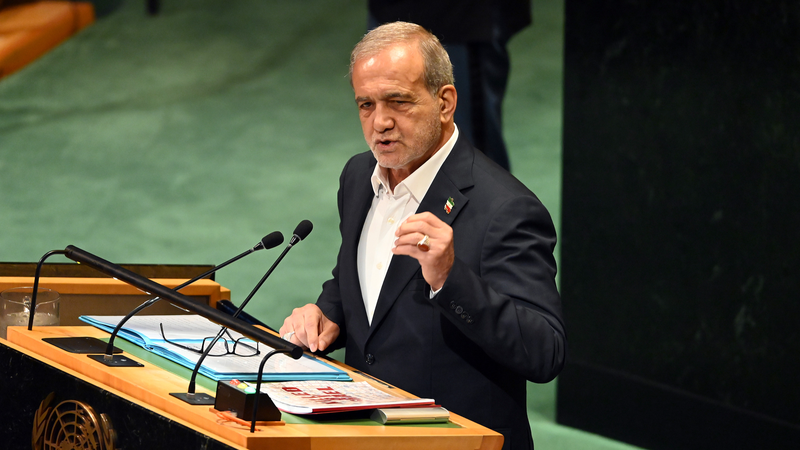At the UN General Assembly on Wednesday, Iranian President Masoud Pezeshkian made a clear declaration: Iran has never sought—and will never seek—a nuclear weapon. Speaking to world leaders, he emphasized that this stance is rooted in an edict from the Supreme Leader and religious authorities in Tehran.
The controversy erupted after France, Britain and Germany—the E3—triggered the “snapback” mechanism under the 2015 Joint Comprehensive Plan of Action (JCPOA). On August 28, the trio notified the UN Security Council of Iran’s alleged “non-performance,” aiming to reinstate UN sanctions suspended by the deal.
Pezeshkian dismissed the E3 move as illegitimate and accused European partners of trying to “destroy” the very pact they once hailed as the biggest achievement of multilateral diplomacy. The JCPOA originally brought Iran together with Britain, China, France, Germany, Russia and the United States in a landmark agreement to curb Tehran’s nuclear program in exchange for sanctions relief.
In 2018, the United States withdrew from the deal and reimposed sanctions. In response, Iran gradually scaled back its commitments under the agreement, setting the stage for the latest standoff in New York.
For young global citizens tracking geopolitics, the E3’s snapback push signals renewed tensions over non-proliferation efforts. Business observers warn such sanctions could hit emerging market opportunities in energy and technology, while diplomacy experts question the resilience of multilateral frameworks in today’s polarized landscape.
As the UN gears up for further debates, all eyes will be on whether Iran and its former partners can revive dialogue or if the JCPOA faces a final unraveling.
Reference(s):
Iran denies nuclear arms pursuit, criticizes E3 sanctions move
cgtn.com



